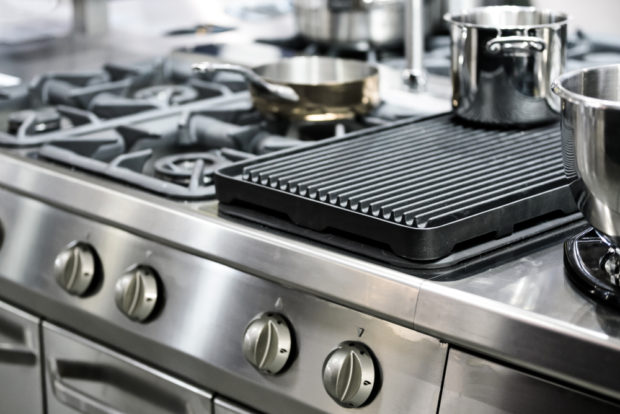In the bustling environment of a commercial kitchen, emergencies can occur at any time. Whether it’s a fire, flood, or power outage, having a well-thought-out emergency plan can make all the difference in ensuring safety and minimizing damage. This comprehensive guide will walk you through essential steps to prepare your commercial kitchen for emergencies, ensuring that you can handle any situation with confidence and efficiency.
The Importance of Emergency Preparation
Emergency preparation for commercial kitchens is not just about having a plan in place—it’s about creating a culture of safety and readiness. In the high-pressure world of food service, where time is of the essence and hazards are ever-present, having clear protocols can prevent chaos and ensure the safety of your staff and patrons.
Benefits of Proper Emergency Preparation
- Protects Employees and Patrons: Ensures that everyone in the kitchen knows what to do in an emergency, reducing the risk of injury.
- Minimizes Damage: Quick and effective response can limit the extent of damage to equipment and property.
- Maintains Business Continuity: Helps in swiftly resuming normal operations after an emergency, minimizing downtime.
- Compliance with Regulations: Adheres to legal requirements and industry standards for safety and emergency preparedness.
Steps to Ensure Kitchen Safety in Case of Emergencies
Preparing your commercial kitchen for emergencies involves several critical steps. Each step addresses a different aspect of safety and preparedness, creating a comprehensive approach to handling emergencies effectively.
1. Develop an Emergency Plan
An emergency plan is the cornerstone of your preparation efforts. It should outline procedures for various types of emergencies, including fires, floods, power outages, and gas leaks.
Key Components of an Emergency Plan
- Contact Information: Include emergency contacts such as local fire and police departments, medical facilities, and utility companies.
- Evacuation Routes: Clearly mark evacuation routes and exits. Conduct regular drills to ensure that staff are familiar with them.
- Roles and Responsibilities: Assign specific roles to staff members for handling different aspects of an emergency, such as leading evacuations or contacting emergency services.
2. Conduct Regular Training
Training is essential to ensure that your staff knows how to respond during an emergency. Regular training sessions will help reinforce safety procedures and improve response times.
Training Topics to Cover
- Fire Safety: Use of fire extinguishers, fire alarm procedures, and evacuation protocols.
- First Aid: Basic first aid skills, including how to handle burns, cuts, and other injuries.
- Emergency Communication: Procedures for communicating with emergency services and among staff members during a crisis.
3. Install and Maintain Safety Equipment
Proper safety equipment is crucial for handling emergencies effectively. Ensure that your kitchen is equipped with the necessary tools and that they are well-maintained.
Essential Safety Equipment
- Fire Extinguishers: Install fire extinguishers in accessible locations and ensure they are regularly inspected and serviced.
- Smoke Alarms: Install smoke alarms in key areas of the kitchen and test them regularly.
- First Aid Kits: Stock first aid kits with necessary supplies and keep them easily accessible.
- Emergency Lighting: Ensure that emergency lighting is installed and functioning to provide visibility during power outages.
4. Create a Communication Plan
Effective communication is vital during emergencies. A communication plan helps ensure that everyone in the kitchen is informed and can coordinate their actions.
Elements of a Communication Plan
- Internal Communication: Establish methods for staff to communicate with each other during an emergency, such as walkie-talkies or a designated meeting point.
- External Communication: Designate a person to handle communication with external parties, including emergency services, media, and customers.
- Emergency Contact List: Maintain an updated list of emergency contacts for all staff members and ensure it is readily accessible.
5. Implement Risk Assessments
Regular risk assessments help identify potential hazards and vulnerabilities in your kitchen. Addressing these risks proactively can prevent emergencies from occurring.
Conducting Risk Assessments
- Inspect Equipment: Regularly inspect kitchen equipment for signs of wear and tear that could lead to malfunctions or accidents.
- Evaluate Safety Procedures: Review existing safety procedures and update them based on recent incidents or changes in operations.
- Identify Potential Hazards: Look for potential hazards such as slip and fall risks, electrical issues, and flammable materials.
6. Maintain Compliance with Regulations
Adhering to industry regulations and standards is essential for ensuring safety and avoiding legal issues. Familiarize yourself with local regulations related to kitchen safety and emergency preparedness.
Key Regulations to Follow
- Health and Safety Standards: Comply with local health and safety regulations, including those related to fire safety and first aid.
- Building Codes: Ensure that your kitchen meets all building codes, including those related to fire exits, emergency lighting, and ventilation.
- Insurance Requirements: Check your insurance policy to ensure that it covers emergency situations and that you meet any related requirements.
Emergency Protocols for Commercial Kitchens
Having clear emergency protocols is crucial for ensuring that your staff knows exactly what to do in various situations. These protocols should be communicated regularly and practiced through drills.
Fire Emergencies
- Activate Fire Alarms: Immediately activate the fire alarm system to alert everyone in the building.
- Use Fire Extinguishers: Only use a fire extinguisher if the fire is small and manageable. Otherwise, evacuate immediately.
- Evacuate: Follow the designated evacuation routes and gather at the predetermined assembly point.
Flooding and Water Leaks
- Shut Off Water Supply: If possible, shut off the main water supply to prevent further flooding.
- Evacuate: Ensure that staff and patrons evacuate safely, avoiding areas with standing water.
- Contact Professionals: Contact a professional water damage restoration service to address the issue.
Power Outages
- Check Generators: Ensure that backup generators are functioning and have enough fuel.
- Secure Perishables: Move perishable items to a cooler or freezer with backup power if available.
- Notify Customers: Inform customers about the situation and any potential delays.
Gas Leaks
- Evacuate: Immediately evacuate the area and ensure that everyone is at a safe distance from the potential leak.
- Turn Off Gas Supply: If it is safe to do so, turn off the gas supply at the main valve.
- Contact Gas Company: Notify the gas company to inspect and repair the leak.
Conclusion
Preparing your commercial kitchen for emergency situations is essential for maintaining safety and minimizing damage. By developing a comprehensive emergency plan, conducting regular training, installing and maintaining safety equipment, and implementing effective communication and risk assessment procedures, you can ensure that your kitchen is well-prepared to handle any emergency. Regularly review and update your protocols to keep your team ready and your operations running smoothly, even in the face of unexpected challenges.
Need Commercial Appliance Repair in Wilmington, DE?
Since 1984, Commercial Equipment Service Inc. has been providing service and sales of commercial/restaurant cooling, refrigeration and heating equipment to Wilmington, Delaware and the surrounding area. We are a locally owned business with over 42 years of experience. Our friendly staff prides itself on our professional attitude and service. Commercial Equipment Service Inc. is a 24/7 on-call service for your appliance needs! We install and repair all refrigeration and cooking equipment, heating and air conditioning, emergency generator sales, kitchen exhaust systems, beverage systems and so much more. Contact us today to learn more about what we can do for you!

